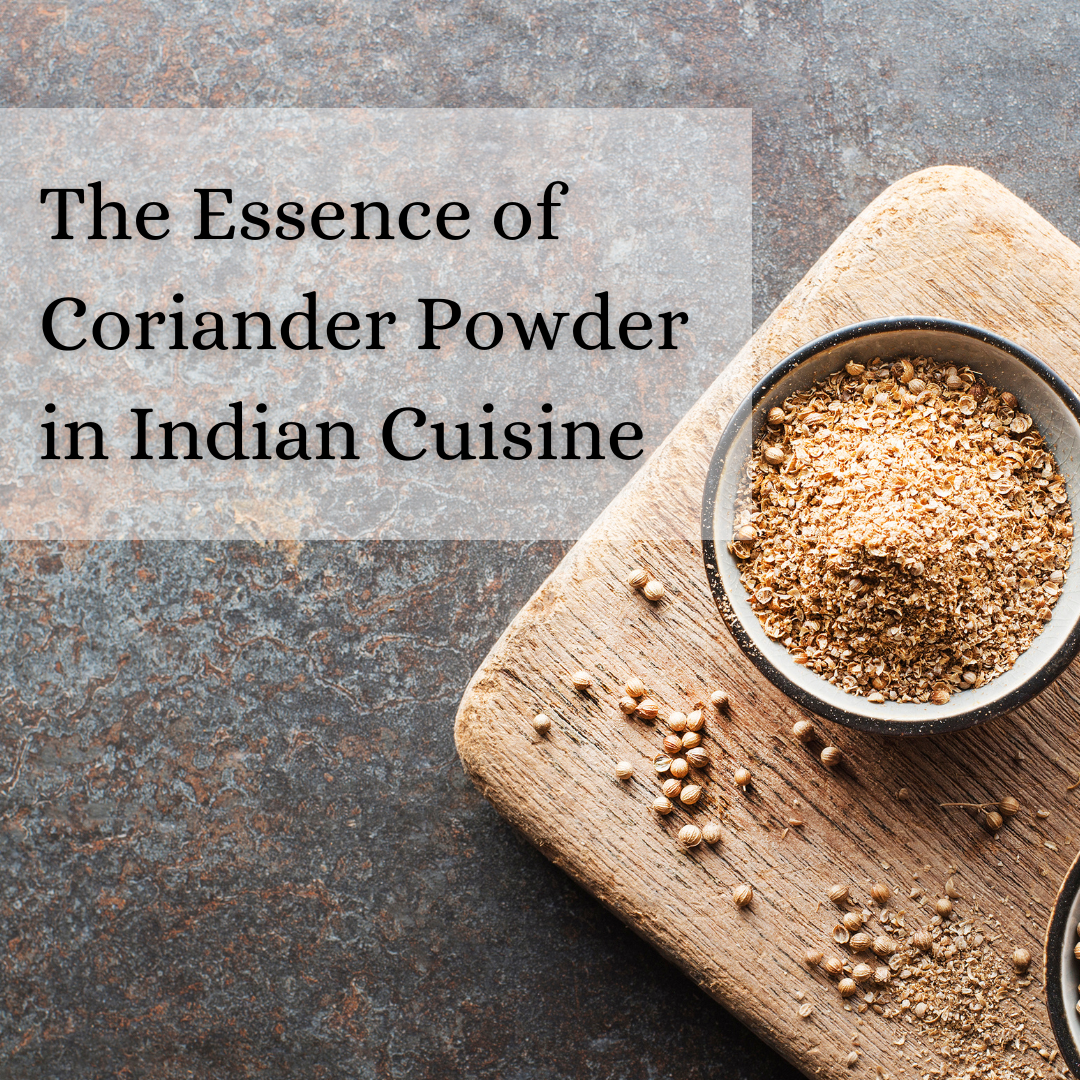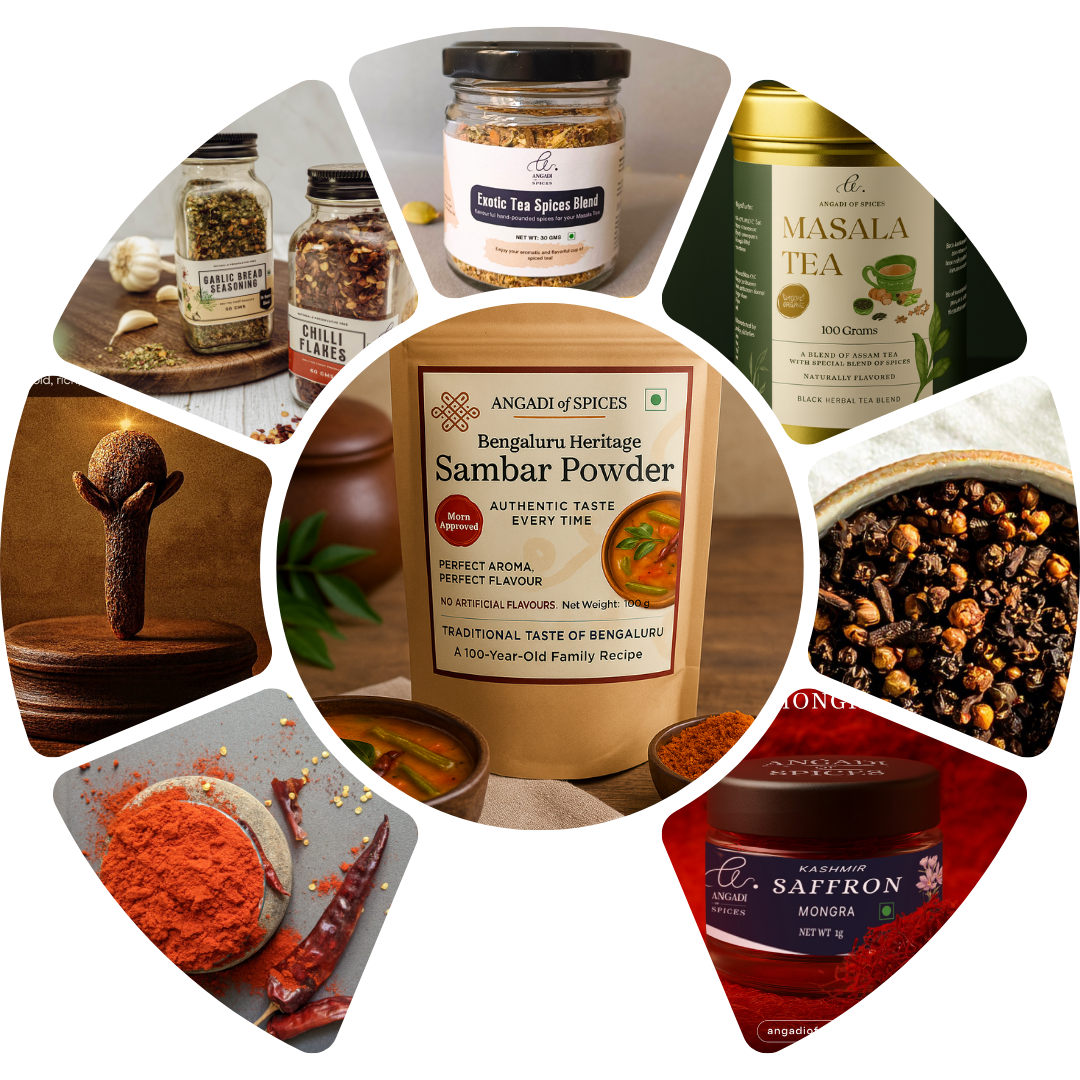The Essence of Coriander Powder in Indian Cuisine
Coriander powder, known as "dhaniya powder" in Hindi, is an indispensable spice in Indian kitchens. Derived from the seeds of the coriander plant (Coriandrum sativum), this spice plays a vital role in Indian culinary traditions, contributing to the rich tapestry of flavours that characterise the nation's diverse cuisine.

Historical Significance and Cultural Importance
Q: How did coriander powder become a staple in Indian cuisine?
A: Coriander has been used in India for thousands of years, dating back to ancient civilizations. Historical texts and archaeological evidence indicate its use in both culinary and medicinal applications. The spice was highly valued for its flavor-enhancing properties and its ability to aid digestion, making it a staple in Indian households.
Culinary Uses of Coriander Powder
Coriander powder is incredibly versatile and is used in various forms across Indian cuisine. Here are some of its primary uses:
- Flavouring Curries: Coriander powder is a fundamental ingredient in many Indian curry recipes. It imparts a mild, slightly sweet, and citrusy flavor that complements other spices.
- Spice Blends: It is a key component in popular spice blends like garam masala and sambar powder.
- Marinades: Used in marinades for meats and vegetables, coriander powder helps tenderise and infuse flavour.
- Pickles and Chutneys: Adds depth to pickles and chutneys, enhancing their taste and aroma.
- Baked Goods: In some regional cuisines, coriander powder is used in baking traditional breads and snacks.
Regional Variations of Coriander Powder in India
India's diverse culinary landscape means that coriander powder is prepared and used differently across regions. Here are some notable variations:
-
North India: In North Indian cuisine, coriander powder is often combined with other spices like cumin, turmeric, and garam masala to create rich, aromatic dishes like curries and gravies.
-
South India: In the South, coriander powder is a crucial ingredient in sambar and rasam powders. It is also used in coconut-based curries and rice dishes.
-
West India: Maharashtrian and Gujarati cuisines use coriander powder in combination with spices like fennel and sesame seeds to flavor vegetarian dishes, pickles, and snacks.
-
East India: Bengali cuisine uses coriander powder in fish curries and vegetable dishes, often in combination with mustard seeds and poppy seeds.
Health Benefits of Coriander Powder
Coriander powder is not just a culinary delight but also offers several health benefits:
- Digestive Aid: It stimulates appetite and aids in digestion, helping to alleviate bloating and discomfort.
- Anti-inflammatory Properties: Contains compounds that have anti-inflammatory effects, potentially helping to reduce symptoms of arthritis.
- Rich in Nutrients: Packed with dietary fiber, vitamins A, C, and K, and minerals like iron, magnesium, and potassium.
- Blood Sugar Regulation: Some studies suggest that coriander can help in managing blood sugar levels by enhancing the body's insulin activity.
Interesting Facts About Coriander Powder
- Ancient Origins: Coriander seeds have been found in ancient Egyptian tombs, indicating their historical significance.
- Dual Role: The coriander plant is unique in that its leaves (cilantro) and seeds (coriander) are both used in cooking, offering distinct flavors.
- Global Reach: While a staple in Indian cuisine, coriander is also widely used in Middle Eastern, Mediterranean, Latin American, and Southeast Asian cuisines.
- Essential Oil: Coriander seeds are used to extract essential oil, which is used in perfumes, soaps, and aromatherapy.
Questions and Answers About Coriander Powder
Q: Can coriander powder be substituted with coriander seeds?
A: Yes, coriander seeds can be ground to make coriander powder, though the flavor may be slightly more intense. It’s best to dry roast the seeds before grinding to enhance their aroma.
Q: How should coriander powder be stored?
A: Store coriander powder in an airtight container in a cool, dry place away from direct sunlight to preserve its flavour and potency.
Q: Is coriander powder gluten-free?
A: Yes, coriander powder is naturally gluten-free, making it a safe choice for individuals with gluten sensitivities or celiac disease.
Q: Can coriander powder help with weight loss?
A: While not a miracle solution, coriander powder can support weight loss efforts by improving digestion and reducing water retention.
Q: How much coriander powder should be used in cooking?
A: Typically, 1 to 2 teaspoons of coriander powder are sufficient for most recipes, but this can vary depending on the dish and personal taste preferences.
Conclusion
Coriander powder is a cornerstone of Indian cuisine, revered for its flavor, versatility, and health benefits. Whether used in traditional recipes or innovative culinary creations, this spice continues to hold a special place in the hearts and kitchens of Indians. By understanding its regional variations and culinary uses, one can truly appreciate the depth and richness that coriander powder brings to Indian cooking.




